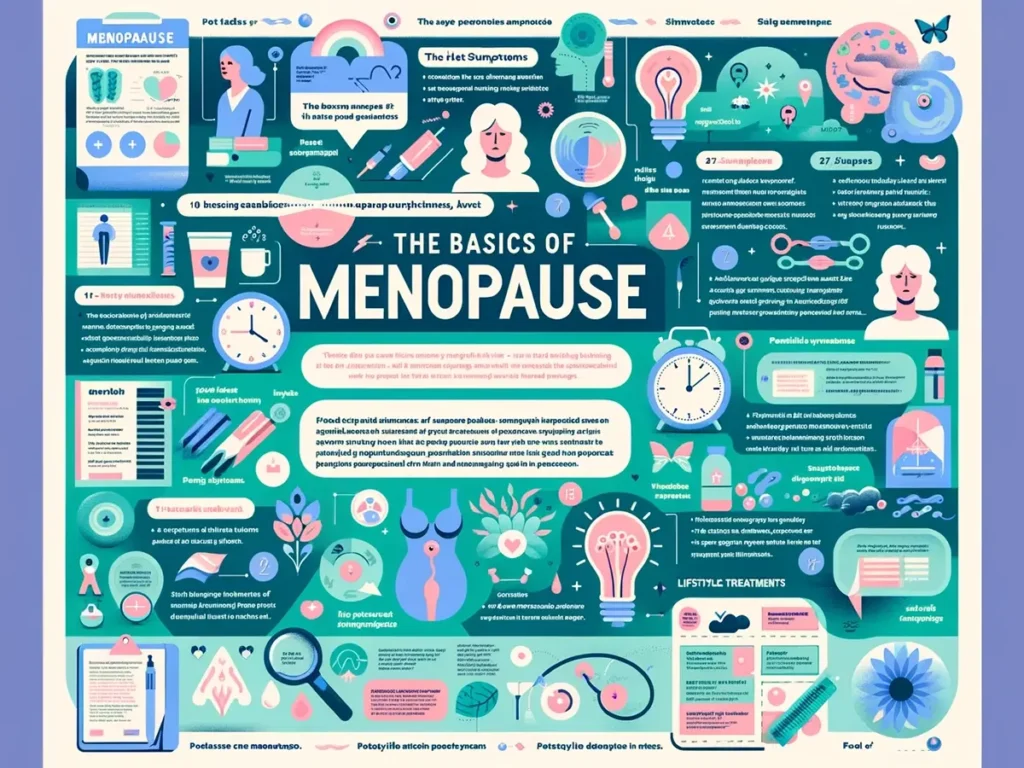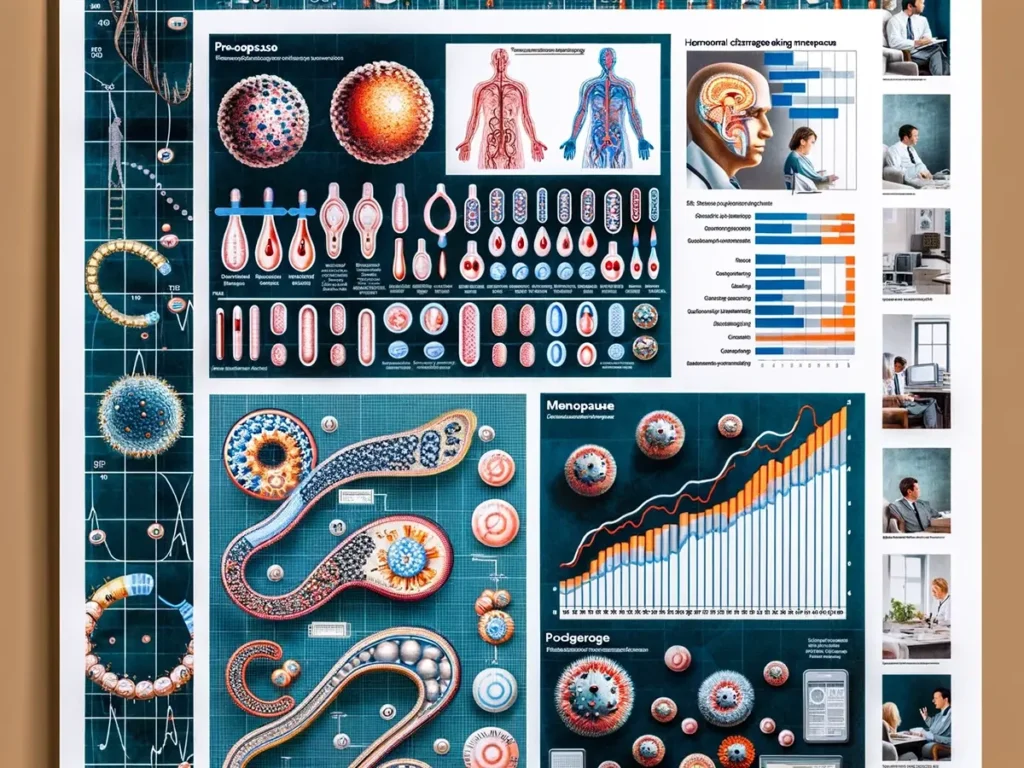Many women approaching midlife may ponder the question: Are menopause symptoms hereditary? The experience of menopause can vary significantly from woman to woman. Still, emerging research suggests that genetics may play a role in predisposing women to specific symptoms during this natural transition. Understanding the potential hereditary component of menopause symptoms can provide valuable insight into what to expect and how to manage them effectively.
Key Takeaways:
- Menopause symptoms can have a hereditary component: Studies suggest that genetic factors may play a role in the severity and timing of menopause symptoms.
- Specific genes may influence menopause symptoms: Research has identified certain genes that may impact hot flashes, mood swings, and other menopausal issues.
- Family history can be a predictor: If your mother experienced severe menopause symptoms, you may be more likely to have similar challenges.
- Lifestyle factors also play a role: While genetics play a part, lifestyle choices such as diet, exercise, and stress management can also influence menopause symptoms.
- Consulting with a healthcare provider is critical: If you have concerns about your menopause symptoms, discussing your family history and genetic predispositions with a healthcare provider can help guide your management plan.
The Role of Genetics in Menopause
If you’ve ever wondered about the connection between your family history and your experience with menopause, you’re not alone. Understanding the role of genetics in menopause can offer valuable insights into why symptoms vary among women with similar backgrounds. Let’s explore the influence of genetics on menopause onset and symptoms.
Heritability of Menopause Onset
One of the critical aspects of menopause influenced by genetics is the age at which it occurs. Research suggests that the timing of menopause onset is partially heritable, meaning that it can be passed down from generation to generation. If your mother or grandmother experienced early or late menopause, there’s a chance that you may follow a similar pattern.
Several factors, including the age at which your relatives went through menopause, can contribute to estimating your menopausal onset. While genetics play a role, lifestyle factors and overall health also play a significant part in determining when menopause will occur for an individual.
Genetic Markers and Menopausal Symptoms
Onset
Recent studies have identified specific genetic markers associated with an increased risk of certain menopausal symptoms. These markers can help predict the likelihood of experiencing issues such as hot flashes, mood changes, or osteoporosis during menopause. Understanding these genetic indicators can empower women and healthcare providers to take proactive steps in managing potential symptoms.
Menopause
By delving deeper into the genetic components of menopause, researchers aim to develop more personalized approaches to symptom management and treatment. This personalized medicine approach holds promise for improving the quality of life for menopausal women by tailoring interventions based on individual genetic predispositions.
Non-Genetic Factors Affecting Menopause Symptoms
Assuming that menopause symptoms are not solely determined by genetics, various non-genetic factors can affect a woman’s experience during this natural transition in life. These factors may include environmental influences, lifestyle choices, hormonal fluctuations, and physiological changes that can impact the severity and duration of menopause symptoms.
Environmental and Lifestyle Influences
Environmental factors such as pollution, toxins, and stress levels can play a role in exacerbating menopause symptoms. Additionally, lifestyle choices such as diet, exercise, and smoking can also influence how a woman experiences menopause. For example, a diet high in processed foods and sugar may contribute to more severe hot flashes and mood swings. At the same time, regular exercise can help alleviate symptoms by reducing stress and promoting overall well-being.
Hormonal and Physiological Changes
Lifestyle factors like alcohol consumption, weight management, and sleep patterns can impact hormonal fluctuations and physiological changes that occur during menopause. For instance, excessive alcohol intake can disrupt hormone levels and worsen symptoms like night sweats and insomnia. Weight gain during menopause can also lead to increased estrogen production from fat cells, causing hormonal imbalances that contribute to symptoms such as fatigue and irritability.
Assume that understanding the non-genetic influences on menopause symptoms is vital for women to manage their health and well-being during this transitional phase of life. By addressing environmental, lifestyle, hormonal, and physiological factors, women can take proactive steps to alleviate menopause symptoms and improve their overall quality of life.
Predicting and Managing Menopause Symptoms
After years of fluctuating hormones, most women eventually reach menopause, a natural stage of life marked by the cessation of menstruation. Menopause brings with it a variety of symptoms, from hot flashes and mood swings to sleep disturbances and vaginal dryness. While these symptoms are a standard part of the menopausal experience, their intensity and duration can vary significantly from woman to woman. Predicting and managing menopause symptoms can be challenging, but understanding the role of personal and family medical history, as well as advances in genetic testing and hormone therapy, can help women navigate this transitional period with greater ease.
Personal and Family Medical History
Predicting the onset and severity of menopause symptoms can be influenced by personal and family medical history. Women who have close female relatives who experienced early menopause or had severe symptoms may be more likely to have a similar experience themselves. Keeping track of when your mother or sisters went through menopause can provide valuable insight into what to expect. Additionally, certain medical conditions or lifestyle factors, such as smoking or a history of irregular periods, can also impact the timing and intensity of menopause symptoms.
By discussing your personal and family medical history with your healthcare provider, you can work together to develop a proactive plan for managing potential menopause symptoms. Your provider may recommend lifestyle changes, dietary adjustments, or even hormone therapy to help alleviate symptoms and support your overall well-being during this transition.
Advances in Genetic Testing and Hormone Therapy
Advances in genetic testing have opened up new possibilities for predicting and managing menopause symptoms. By analyzing specific genetic markers, healthcare providers can offer personalized insights into an individual’s likelihood of experiencing particular symptoms and their response to hormone therapy. This tailored approach allows for more targeted treatment plans that may be more effective in managing menopause symptoms.
Any woman considering genetic testing or hormone therapy should consult with a qualified healthcare provider to discuss the potential benefits and risks. While genetic testing can provide valuable information, it is essential to understand that not all menopause symptoms are hereditary, and lifestyle factors also play a significant role in how individuals experience this transition. Hormone therapy, when used appropriately and under medical guidance, can be a valuable tool in managing menopause symptoms and improving quality of life.
To wrap up
Genetic factors can influence menopause symptoms, and there is evidence to suggest that they can be hereditary to some extent. While more research is needed to understand the role that genetics play in menopausal symptoms entirely, it is clear that a woman’s family history may provide some indication of what she can expect during this transition. By being aware of potential hereditary factors, women can be better prepared and proactive in managing their menopause symptoms.
FAQ
Q: Is menopause symptom hereditary?
A: Yes, menopause symptoms can be hereditary. Women are more likely to experience similar menopausal symptoms to their female relatives, such as mothers or sisters.
Q: What are some common hereditary menopause symptoms?
A: Common hereditary menopause symptoms include hot flashes, night sweats, mood swings, irregular periods, and vaginal dryness.
Q: Can genetics determine the age at which menopause occurs?
A: Yes, genetics can play a role in determining the age at which menopause occurs. Women with a family history of early or late menopause are more likely to experience menopause around the same age.
Q: Are all menopause symptoms hereditary?
A: While not all menopause symptoms are hereditary, there is a genetic component to specific menopausal symptoms, such as hot flashes and mood changes.
Q: What can be done if menopause symptoms are hereditary?
A: If menopause symptoms are hereditary, it is essential to consult a healthcare provider to discuss personalized treatment options, lifestyle changes, and management strategies to alleviate symptoms and improve quality of life.






